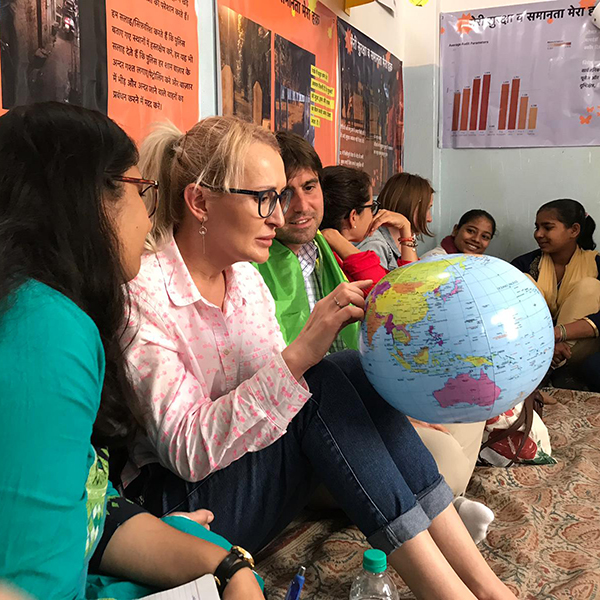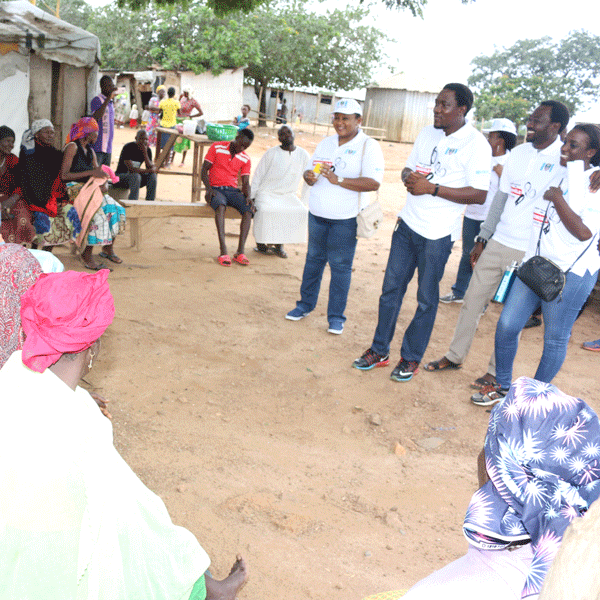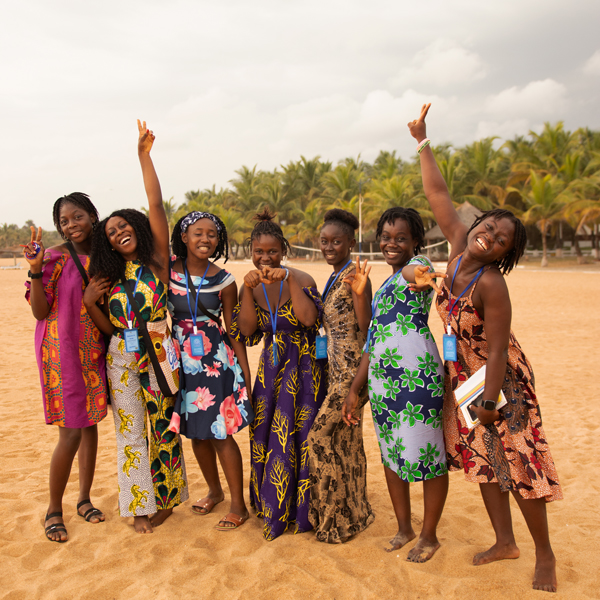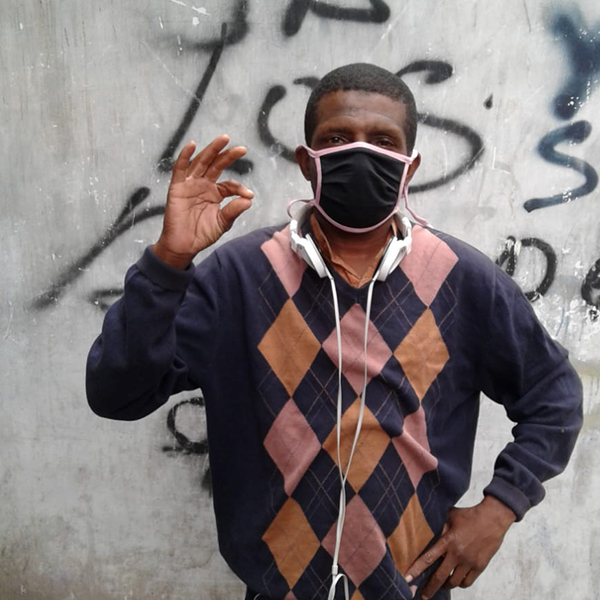This blog post was written by GFC and Seattle International Foundation’s CAMY Fund. It is also available in Spanish.
Seattle International Foundation’s CAMY Fund and Global Fund for Children share learnings and reflections from a participatory research project titled “Disruptive Youth Movements in Mexico, Central America, and Colombia” that was carried out between 2019–2021 and presented in August 2022.
In 2019, Seattle International Foundation’s CAMY Fund and GFC, together with other donors committed to defending human rights in Latin America, began a journey full of challenges and unresolved questions. Faithful to our collective dream of continuing to effectively support youth organizations and movements, we embarked on a research process carried out simultaneously in Mexico, Colombia, and several Central American countries with the aim of listening to, recognizing, and learning from youth efforts to promote human rights and the wellbeing of their families, communities, and environments.
The project was called “Disruptive Youth Movements in Mexico, Central America, and Colombia” and it was conceived, from the beginning, as an initiative of diverse youth, with diverse youth, and for diverse youth. In each country, a youth organization or young leader was selected to design the objectives, methodology, and scope of the research in a process that encouraged horizontal relationships to imagine and build collective learning and practices. In each country, moreover, life experience and “street” work or political organizing experience was prioritized over the purely academic perspective.
Furthermore, it was the youth themselves who decided when, how, and with whom they wanted to share the results of this participatory research, which is the outcome of the enthusiastic and committed work of more than 25 young researchers who adapted and persevered even in the most challenging contexts. As donors, here are some of the results and lessons we learned from participating in this project:
1. We learned to love and humanize the process
We recognize that the process was chaotic, long, and complex. For this very reason, however, it was also profoundly (and beautifully) human. The process touched us, moved us, and transformed us.
It forced us to question our own adult-centric logic and to look at and recognize ourselves in all our diversity. As donors, we learned that serious, professional, and committed work does not have to be linked to pressure, rigidity, and automatic, periodic, and artificial compliance with goals or activities that don’t serve a real purpose.
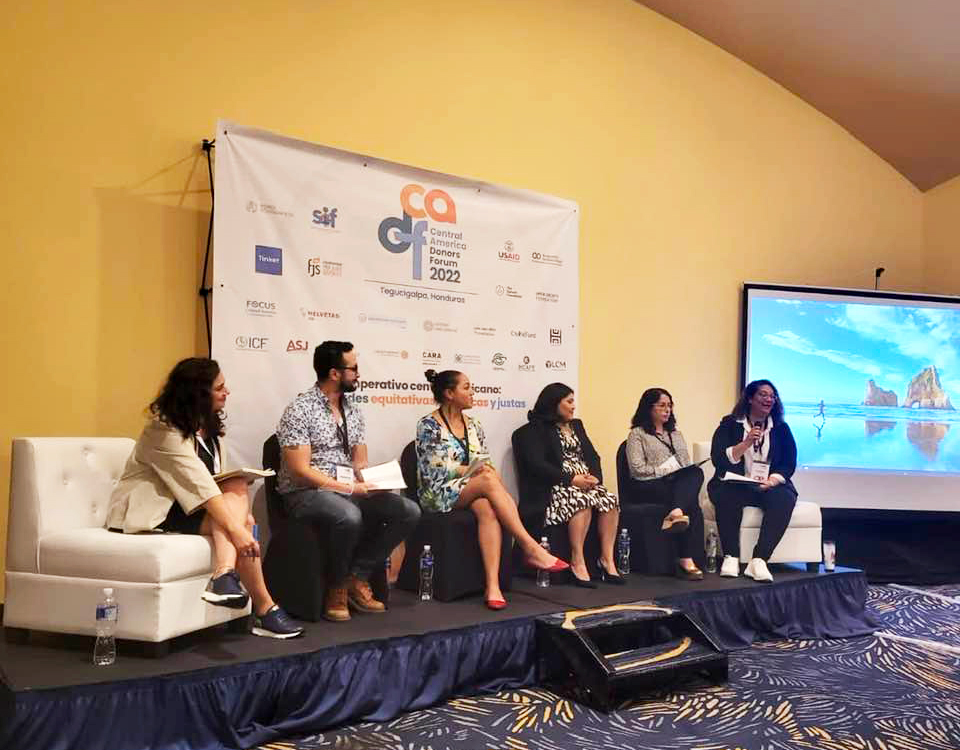
Social change takes time. It requires spaces to learn and make mistakes as well as moments to pause, to think, and to look inward. It demands practices of affection, care, and association. It urges us to recognize, embrace, and name our emotions.
The COVID-19 pandemic also reminded us that flexibility can be a powerful engine for resilience, innovation, and creativity. Without these values, actively promoted by the youth, the investigation would never have come to fruition.
Our main learning was that the greatest resistance of these young people in the face of adversity is to exist, dream, and organize.
By doing this, they mobilize identities, bodies, art, territories, and emotions and generate safe spaces – virtual, physical, and symbolic – to care for their peers, their communities, and their territories.
Thanks to the youth, we learned that by energizing human processes and committing to the creation of new bonds of listening, care, and mutual recognition, we can contribute to changing the world.
2. We embraced rebellion as an engine of change
Despite their diversity, youth movements agree on one thing: they are not satisfied with the world as it is, nor are they interested in adjusting to it. They have been witnesses to and victims of systems that promote death, injustice, and selfishness as the only possibilities, and they are not willing to accept this situation anymore.
Their resistance strategies are incredibly diverse. From their trenches and with their own resources, aesthetics, and narratives, Latin American youth are creating their own languages of resistance. They do not necessarily seek to work from clearly defined spaces or approaches, or to have rigid and vertical organizational structures. On the contrary, the youth bet on dignified rage, on resisting while finding enjoyment, and on embracing their own existences through resistance.
Their greatest rebellion is to continue living, to continue creating, to continue proposing. And, as funders, the best way to honor them is to be willing to change and bet on new practices and new learnings.
Thanks to the youth, we learned that creating spaces for questioning, transformative discomfort, and disruptive proposals is essential to build effective, human, and powerful proposals for change.
3. We remembered that together, we are more
This research has also been an invaluable opportunity to understand that youth activism in the region is a living and constantly changing ecosystem. A choir made up of many voices. A path made by many hands, by many dreams, by many efforts.
Claiming their own identities and personal struggles, the movements of rural youth, LGBTQ+ youth, environmentalist youth, feminist youth, Indigenous youth, young artists, and other groups also work for the promotion of transformative dialogues and intersectional struggles. They weave bridges to tear down walls.
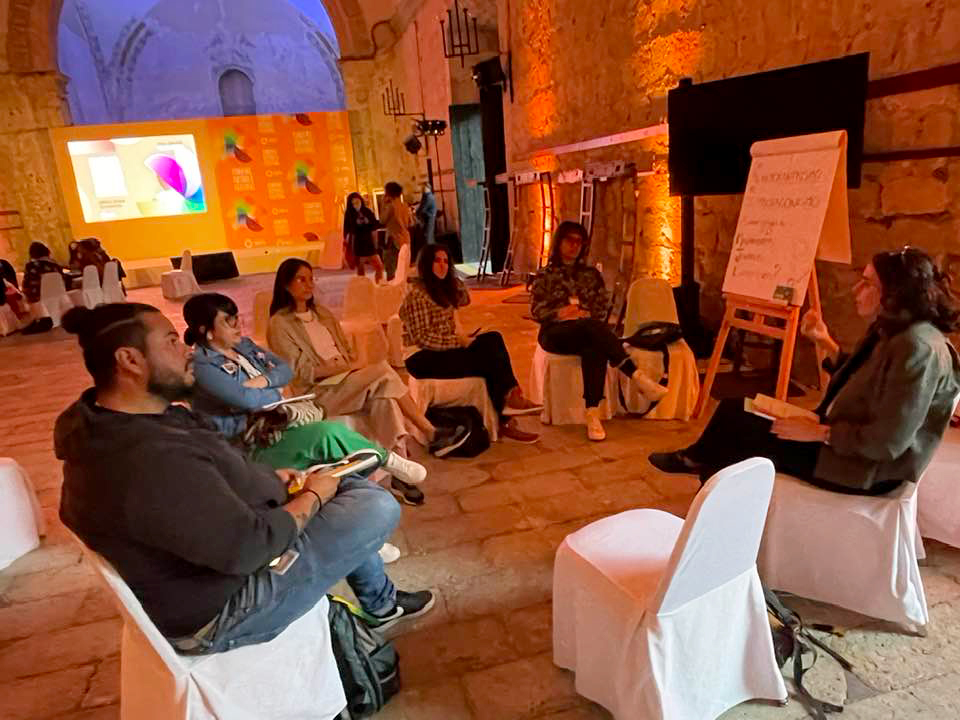
This research process made us realize that it is possible to design and implement joint initiatives, that we can think of ourselves collectively, and that it is necessary to advance in the creation of a true community of donors that is committed to systemic and long-term change.
Thanks to the youth, we learned that our responsibility does not end with technical or financial support. We can also be active members of diverse networks based on dialogue and the sharing of knowledge, practices, and experiences of resistance. We can reflect, take care of ourselves, and act together.
Participating in this research has changed how we work as donors. For GFC’s Americas team, the research allowed us to deeply understand the needs and experiences of youth and develop participatory, comprehensive, and effective support strategies aimed at strengthening youth-led leadership. At SIF’s CAMY Fund, this research has deepened our understanding of youth perspectives. We’ve also created a research project management department, and we’ve strengthened our flexible financing model based on trust, prioritizing grassroots organizations, collectives, and emerging groups.
For the participating youth, this process allowed them to remember that they are not alone. It contributed to weaving alliances and to beginning to build a memory of resistance. It reminded them that they have the right to celebrate their victories, amplify their struggles, and imagine new possibilities. And to us as funders, it gave us the opportunity to support them by generating spaces in which the capacity and leadership of youth is recognized.
This is just the beginning of a path that excites and encourages us. Together, we will continue to care for and cultivate this seed for change so that it continues to light our hearts and give meaning to our efforts.
